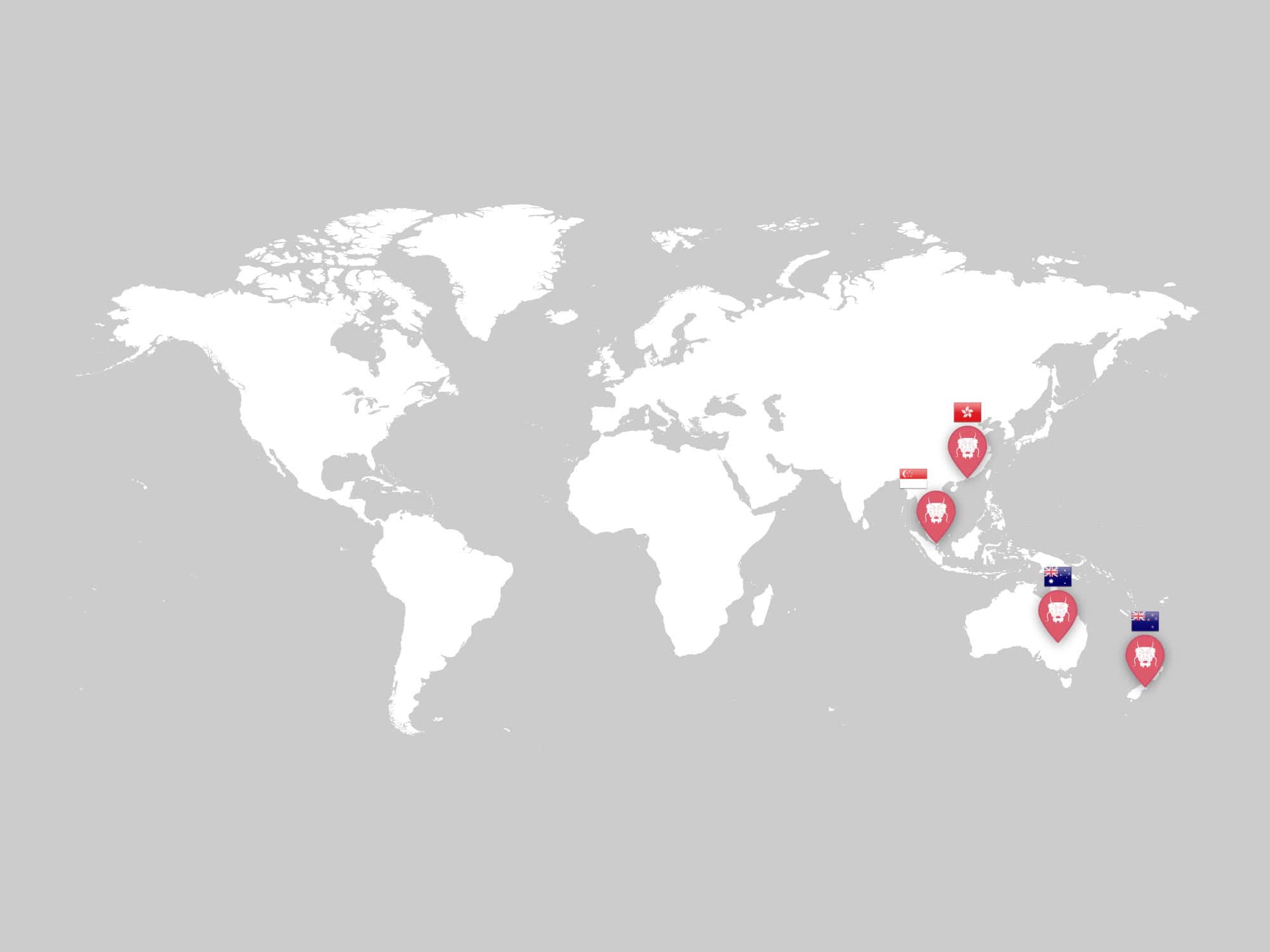Table of Contents

Read our entrepreneur’s guide to setting up a business in Australia and now thinking about how to grow your team? The laws and policies relating to hiring workers differ from country to country, and it is crucial to ensure that you comply with these laws and fulfil your minimum obligations as an employer. You need to consider different things like minimum wages in Australia to pay your employee ans so on.
Here, we take you through each stage of the hiring cycle and list the considerations that you should have when employing workers in Australia.
Related reading: Top 5 Australian government grants for small businesses you should know about
The most important piece of legislation governing employment relationships in Australia is the Commonwealth Fair Work Act 2009 which came into operation on 1 July 2009. A failure to comply with the Fair Work Act could attract penalties of up to AUD 51,000 per breach.
Things Needed to done before hiring New employee in Australia
Assessing job applicants
Once you publish job descriptions and invite applicants for the positions available in your company for hiring employee in australia, you will have to conduct a selection process to sieve out candidates to put through to the next stage of the application process. Throughout this process, it is crucial that you maintain a non-discriminatory approach in checklist to hire an employee in Australia. According to the Fair Work Act, employers are not allowed to take adverse action against a prospective employee because of a protected attribute. Protected attributes may include:
- race;
- colour;
- sex;
- sexual orientation;
- age;
- physical or mental disability;
- marital status;
- family or carer’s responsibilities;
- pregnancy;
- religion;
- political opinion;
- national extraction; and
- social origin.
This means that when shortlisting or selecting candidates, you must ensure that you apply consistent selection criteria. Background checks of your candidates are generally allowed if they are directly relevant to the role and the applicant consents to the check. When conducting background checks, make sure that the process does not constitute unlawful discrimination based on any of the above protected attributes or any ground that is unrelated to the inherent requirements of the role.
Making an offer of employment
While you may express interest in hiring a candidate in australia following an impressive interview, it is good practice to make a formal offer of employment in writing in the form of an Offer of Employment Letter. This is a document that is used to indicate a conditional offer to your selected candidate and lays out the conditions that the candidate has to fulfil in order for the offer to be valid.
By summarising the terms of employment, including remuneration, benefits, working hours and probation, you ensure that your chosen candidate has all the information he or she needs to accept the job.
If you are looking at hiring foreigners employee in Australia,check out SkillSelect, an online service that helps Australia manage its skilled migration programme by supporting the government in determining who can apply for skilled migration, when they can apply and in what numbers.
SkillSelect allows you to quickly and easily identify skilled workers with the right skills and attributes to fill your position and contact them. This can help tackle regional skills shortages while making your hiring process more efficient and reducing overseas advertising and recruitment costs.
However, note that employing foreigners will require to go through more administrative steps. The requirements will vary depending on whether they are skilled workers from overseas who are already in Australia, or skilled workers currently living overseas. Here are the things to look out for if you are hiring foreign workers in Australia falls in following category:
- International student living in Australia. Students are only allowed to work after they have commenced their course in Australia and are only permitted to work a maximum of 40 hours per fortnight when their course is in session. Learn more about the work conditions for student visa holders.
- Skilled workers living overseas. You can sponsor the worker on a permanent basis through the Employer Nomination Scheme or the Regional Sponsored Migration Scheme (if your business is in regional Australia). As for sponsoring a worker on a temporary basis, you can do so via the Temporary Work (Skilled) visa, which allows the worker to come to Australia to work for up to four years.
Signing the Employment Contract while hiring employee in Australia.
As with the Offer of Employment Letter, once your candidate has accepted your job offer, it is good practice to put down the employment contract in writing with an Employment Contract. Employee and emlpoyer can agree with terms and condition in by signing in employment contract.
When drafting the Employment Contract, it is essential to ensure that the terms of employment meet the minimum conditions of employment. This is provided for under the Fair Work Act, which has established a comprehensive statutory ‘safety net’ for employees that comprises the National Employment Standards (NES), Awards and Enterprise Agreements.
The 10 minimum entitlements of the NES are summarised as follows:
| Entitlement | Description |
|---|---|
| Maximum weekly hours of work | 38 hours per week, plus reasonable additional hours. |
| Requests for flexible working arrangements | An entitlement for certain employees to request flexible working arrangements. |
| Parental leave and related entitlements | Up to 12 months unpaid leave per employee, plus a right to request an additional 12 months unpaid leave, plus other forms of parental and adoption-related leave. |
| Annual leave | Four weeks paid leave per year, plus an additional week for certain shift workers. |
| Personal/carer’s leave and compassionate leave | 10 days paid personal/carer’s leave, two days unpaid carer’s leave as required, and two days compassionate leave (unpaid for casuals) as required. |
| Community service leave | Unpaid leave for voluntary emergency activities and leave for jury service, with an entitlement to be paid for up to 10 days for jury service. |
| Long service leave | A transitional entitlement for employees that comes from an applicable pre- modernised award, pending the development of a uniform national long service leave standard. |
| Public holidays | A paid off day on a public holiday, except where reasonably requested to work. |
| Notice of termination and redundancy pay | Up to five weeks notice of termination and up to 16 weeks severance pay on redundancy, both based on length of service. |
| Fair Work Information Statement | Must be provided by employers to all new employees, and contains information about the NES, modern awards, agreement- making, the right to freedom of association, termination of employment, individual flexibility arrangements, union rights of entry, transfer of business, and the respective roles of the Fair Work Commission and the Fair Work Ombudsman. |
Source: Australian Government Fair Work Ombudsman
Most employees are covered by an Award or an Enterprise Agreement. An Award is a legal document that outlines the wages and conditions of employment for employees that are covered by it within a particular industry or occupation, while an Award is an agreement negotiated by the parties through collective bargaining in good faith primarily at the enterprise level, which sets out minimum employment conditions that can apply to one business or a group of businesses.
In some cases, an employee may not be covered by an Award or Enterprise Agreement, and would be considered award and agreement free. Award and agreement free employees in Australia may have an Employment Contract and also remain entitled to the national minimum wage (NMW), which is currently AUD 17.70 per hour or AUD 672.70 per 38 hour week (before tax).
Find out whether your industry is covered by an award and learn more about enterprise bargaining on the Fair Work Ombudsman website. If your employment relationship with your employee is to be governed by an Employment Contract, it is important to focus on the following key clauses when drafting the Employment Contract:
- Period of probation (if any) and notice to be given during probation;
- Benefits the employee will receive;
- How much notice must be given to terminate the agreement; and
- How confidential information should be protected.
For senior employees, it’s also worth including the following:
- Waiver of intellectual property rights;
- Whether they can follow outside business interests; and
- What restrictions you will impose post-termination.
A well-drafted Employment Contract is consistent with the current law and lets both sides know exactly where they stand. Apart from the NES, Awards and Enterprise Agreements, it is also necessary to check the requirements of the various states, depending on where your business is operating.
Resources to help you be a better employer
Navigating the employment regulations of any country is understandably a complex and sometimes nerve-wrecking process, especially when employment laws are subject to change and unhappy employees may bring action against your company. Fortunately, there are various resources that you can turn to to help you better fulfil your obligations as an employer:
- Best practice guides by the Fair Work Ombudsman, an Australian Government agency, to help small businesses and employees on a range of workplace issues, including workplace privacy and parental leave;
- Resources and grants made available by the Australian Government Department of Employment, including Wage Subsidies and the Employment Assistance Fund;
- Employer Hub provides information on employing foreign nationals in Australia, including finding and recruiting skilled migrants, visa applications and sponsorship obligations.

As you enter new markets and encounter unfamiliar regulatory environments, it is important that you stay on top of legislation that may apply to your business. With Zegal recently launched in Australia, you can rely on us to provide you with the right legal documents so that you don’t have to worry about legal.
Claim your free trial. Start drafting legal documents with Zegal today.
Check out the 44 documents designed for Startups in Australia
Related Articles
- Company Incorporation Step by Step: Australia
- How to Start a Business in Australia as a Foreigner
- Pitfalls of Setting Up Business in Australia





